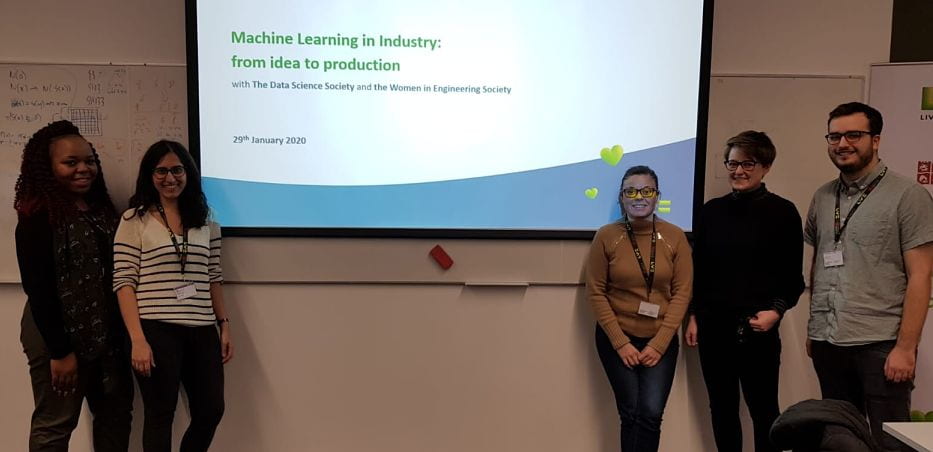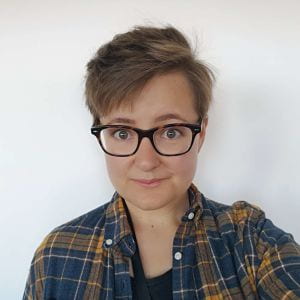Working with the LV=GI team – the heart of data science
We live in a world of big data, with all the questions that raises around privacy and how our data is used. Data scientists and data engineers are helping answer those questions and a team from LV=GI is embedded within the Faculty of Engineering.
Expand your knowledge
Chloe Young works as a data engineer in LV=GI’s data science team. They make, build and deploy the machine learning models that are used by call handlers while speaking to customers. They check the models meet the necessary standards and that they’re working properly and they raise alerts if they don’t.
Tell us a bit about your work
Our data science team has three locations, and I’m lucky enough to be based at the University as part of our collaborative partnership, so I split my time between LV=GI projects and university projects. This means I sometimes work with groups like the Smart Internet Lab, supporting our co-designed and co-delivered master’s degree programme – or with student societies giving talks and holding events like the Datathon with the Data Science Society.

Educating and guiding the next generation is one of the key partnership goals. We’re in a unique position: we get access to academics and students, and have an input into some of their amazing research. We love the highly energised environment – it makes for a really interesting workday!
Both the University and LV=GI share a knowledge base that goes beyond simple project engagements. LV=GI gain access to a large pool of potential team members, as well as academic colleagues who enable us to be at the forefront of research. Our colleagues from the University are able to demonstrate real-world applications of their work.
What did you study and why?

I took physics at the University of Kent and then a master’s by research in marine geology and geophysics at the University of Southampton. For my undergraduate degree I was torn between engineering, physical geography and physics. I chose physics for its flexibility; I could continue to improve on my maths and problem solving skills so they would be of use in any future studies. My master’s let me apply what I’d learnt to some problems I loved and was fascinated by. I didn’t know it at the time, but it gave me the coding skills to get me started with a career in tech.
What did you do after your degree?
Before joining the data science team here, I worked at a data consultancy as a DevOps Engineer. During my two years there I went from having only a brief knowledge of cloud technology to becoming a certified Amazon Web Services Solutions Architect.
What was your favourite toy as a child?
I loved anything crafty, those stained glass window gel paints, any sort of cross stitch or sewing project, anything where I could make something totally new.
This year’s theme for International Women in Engineering Day is ‘Shape the World’ – how do you think engineers will do that in the next 10 years?
With the rate everything is moving now, we’ll definitely see massive changes. In my job you have to keep learning all the time to keep your skills relevant; new technologies emerge that can improve or totally change the best way to do something. New tech will improve how we use data science; we’ve really only just began to scratch the surface. In the future I think it will continue to make our daily lives easier, and I think we’ll see it used more widely to make intelligent business decisions. Most importantly, I think as the number of people with these skills grows across all academic disciplines, it will be used much more widely to enhance our research and drive us towards new discoveries.
Women in Data Science | IBM Code Bristol – Online event 12 May 2020
IBM Code Bristol in collaboration with Jean Golding Institute at Bristol University hosted the first Women in Data Science event at Bristol to coincide with the annual Global Women in Data Science (WiDS) Conference held at Stanford University. You can listen to a recording. The event was aimed at anyone, regardless of gender, who is interested in engaging with and learning from the local data science community.


